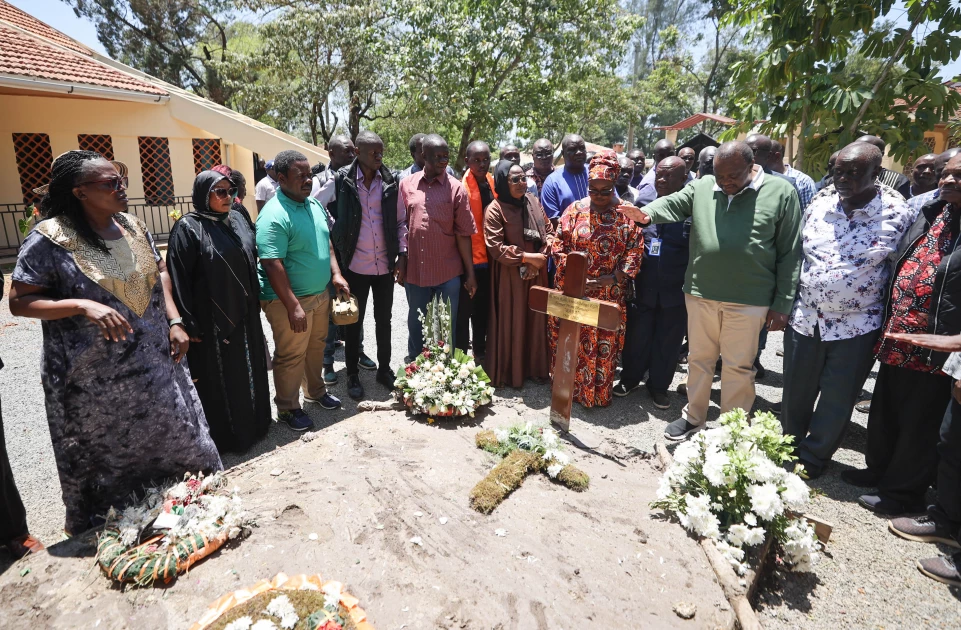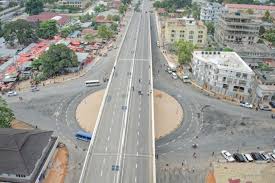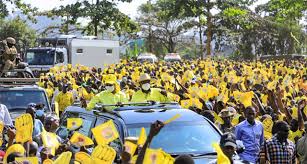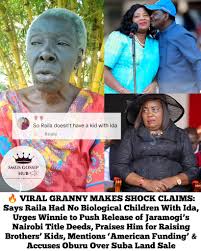Former President Uhuru Kenyatta on Monday made a quiet return to Kang’o ka Jaramogi, the family home of the late Raila Odinga in Bondo, Siaya County, a day after the former Prime Minister was laid to rest.
Kenyatta’s unannounced visit came less than 24 hours after Odinga’s state burial, drawing emotional reflection from Kenyans who viewed it as a personal farewell to his longtime political ally and friend.
Accompanied by Siaya Senator Oburu Oginga, Raila’s elder brother, the former president walked slowly to the gravesite where Odinga was buried next to his father, Jaramogi Oginga Odinga, and his mother, Mary Ajuma.
Witnesses described the atmosphere as solemn. Kenyatta stood in silence for several minutes, at one point raising his right hand toward the grave — a quiet gesture that many interpreted as a final salute to a man he once called “a brother and patriot.”
After a short prayer with Senator Oginga, Kenyatta left the site without addressing the media.
Later that evening, his office released a statement confirming that the former head of state had paid tribute to the life and legacy of Raila Odinga, acknowledging the Odinga family’s enduring contribution to Kenya’s democracy.
“President Kenyatta also visited the Jaramogi Oginga Odinga Mausoleum to honour the family’s role in shaping Kenya’s political history,” the statement read in part.
Odinga, who died last Wednesday while receiving treatment in India, was buried on Sunday in a ceremony attended by national and international dignitaries, family, and close friends.
He was accorded full state honours, including a 17-gun salute, marking the end of a political era for a man who had dominated Kenya’s opposition politics for decades.
Kenyatta, who laid a wreath at the gravesite during the funeral, had earlier described Odinga as “a brother, friend, and patriot whose conviction helped shape the nation’s democratic journey.”
Reflecting on their political relationship, Kenyatta noted that although they had been fierce rivals in the 2013 and 2017 general elections, their 2018 Handshake transformed Kenya’s political landscape.
“Raila and I were navigators on opposing currents, charting different courses for the nation we both loved,” he said.
“But when we came together, it was not out of convenience but out of a shared vision for unity and peace.”
He praised Odinga’s commitment to justice, courage, and belief in national reconciliation, saying their partnership was guided by patriotism rather than personal ambition.
“I have lost a friend and a brother. I will miss our conversations – sometimes challenging, always insightful – and the fire of belief that never left his eyes,” Kenyatta added.
Odinga’s death has sparked an outpouring of grief across the country, with leaders from all political divides paying tribute to his decades-long fight for democracy and equality.
President William Ruto described him as “a statesman whose sacrifices paved the way for Kenya’s democratic freedoms.”
In Bondo, mourners continue to visit the family home, where flags fly at half-mast. Residents say Kenyatta’s visit was a powerful gesture of respect and unity — a reminder of the bond between two leaders who once stood on opposite sides of Kenya’s political divide.
“It shows the humanity beyond politics,” said one resident. “Uhuru came not as a former president, but as a friend saying goodbye.”
The 2018 Handshake between Kenyatta and Odinga ended months of post-election turmoil after the disputed 2017 polls. The peace pact laid the foundation for the Building Bridges Initiative (BBI), aimed at promoting national cohesion, constitutional reforms, and inclusivity.
Although the BBI process was later halted by the courts, the partnership between the two leaders reshaped Kenya’s political alliances and paved the way for dialogue and collaboration across party lines.
As Kenya continues to mourn Raila Odinga, Kenyatta’s quiet visit to his gravesite underscored a relationship built on rivalry, reconciliation, and respect — marking the end of a historic chapter in the nation’s politics.
“Baba’s legacy will live on,” Kenyatta once said. “He taught us that leadership is not about power, but about service to the people.”



